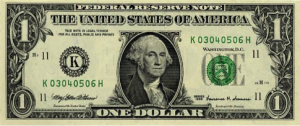By William K. Black
(Cross posted at Benzinga.com)
Everyone involved in financial regulation in modern times with any broad knowledge of the field will know of Bill Seidman, Chairman of the FDIC and the RTC. In 1989, the newly elected President Bush (the First) had a very good idea that became the Financial Institution Reform, Recovery and Enforcement Act of 1989 (FIRREA). FIRREA was one of the very unusual cases of enhancing financial regulation. It was prompted by the lessons we had learned in containing the Savings and Loan (S&L) Debacle. The original administration bill, however, had a very bad idea associated with the President’s chief of staff, John H. Sununu. Sununu is a brilliant guy – who wants you to know how much smarter he is than everybody else. His wiki biography page informs the reader that: Continue reading


 One of the strangest things to understand about Modern Money Theory is why, if government doesn’t need your tax dollars in order to spend, does government tax at all? Here is an attempt at a new and “better” explanation. It is based on the insight that the government DOES, in fact, need to collect taxes, but the “taxes” it collects are not your “tax dollars.” This may sound like gibberish, but stick with me a moment and see if the following doesn’t make sense—and cast a new light on OTHER things as well (like, for example, the “national debt”).
One of the strangest things to understand about Modern Money Theory is why, if government doesn’t need your tax dollars in order to spend, does government tax at all? Here is an attempt at a new and “better” explanation. It is based on the insight that the government DOES, in fact, need to collect taxes, but the “taxes” it collects are not your “tax dollars.” This may sound like gibberish, but stick with me a moment and see if the following doesn’t make sense—and cast a new light on OTHER things as well (like, for example, the “national debt”). FROM the latest cuts to the economic forecasts to the Italian elections to the gathering debate about how George Osborne should play this year’s Budget, all discussions about the financial system now lead swiftly back to the world’s sovereign debt problem. It towers over every effort to get back to prosperity, threatening to take decades at best before it can be resolved, very possibly with an almighty crash along the way.
FROM the latest cuts to the economic forecasts to the Italian elections to the gathering debate about how George Osborne should play this year’s Budget, all discussions about the financial system now lead swiftly back to the world’s sovereign debt problem. It towers over every effort to get back to prosperity, threatening to take decades at best before it can be resolved, very possibly with an almighty crash along the way.








